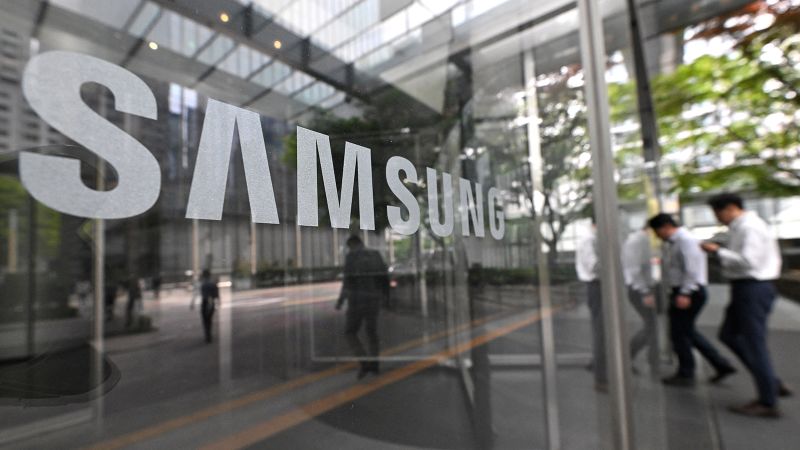South Korean technology giant Samsung Electronics is forecasting strong demand for artificial intelligence, leading to a tightening in the supply of high-end chips. The company expects to benefit from this demand and the rebound in the global memory chip market. Samsung’s optimistic outlook has resulted in a 1.8% increase in its shares following the report of a more than 10-fold rise in first-quarter operating profit.
However, Samsung has been lagging behind its smaller rival SK Hynix in the supply of high-end chips such as high bandwidth memory (HBM) to AI leader Nvidia. Samsung plans to increase its supply of HBM-related chips by more than three-fold compared to last year, with the latest 8-layer HBM3E chips being produced this month for use in generative AI chipsets. The company aims to start production of the 12-layer version in the second quarter and expects HBM3E products to account for a significant portion of its HBM output by the end of the year.
Analysts believe that Samsung’s targets for increasing HBM chip production are aggressive. The company’s 8-layer HBM3E chips may be supplied to Nvidia, while the 12-layer chips could be destined for AMD and Nvidia. Samsung is working on improving the yield of its 12-layer product to meet the demand for high-end chips used in AI applications.
In addition to increasing its high-end memory chip offerings, Samsung plans to boost its solid-state drive (SSD) products to meet the growing demand for AI servers. The company anticipates that supply of high-end memory chips will become tighter towards the end of the year due to capacity being focused on HBM production, a sentiment echoed by SK Hynix in their recent comments.
Samsung reported a 13% increase in revenue in the first quarter, reaching 71.9 trillion won, with memory chip revenue soaring by 96% thanks to the AI boom and rising prices. The chip division, which has historically been Samsung’s cash cow business, swung to a profit in the March quarter after facing losses the previous year. Prices of NAND flash and DRAM chips also saw significant increases in the first quarter, according to data provider TrendForce.
Despite a drop in operating profit in the mobile devices business, Samsung shipped about 60 million smartphones in the first quarter, regaining its title as the world’s top smartphone vendor. The company’s flagship Galaxy S24 smartphones, which launched during the quarter, are seeing strong sales driven by AI functions. About 50% of customers purchased the S24 phones for the AI features, with 60% regularly utilizing these functions. Rising costs, including increased memory chip prices, impacted margins on the Galaxy S24 smartphones.













